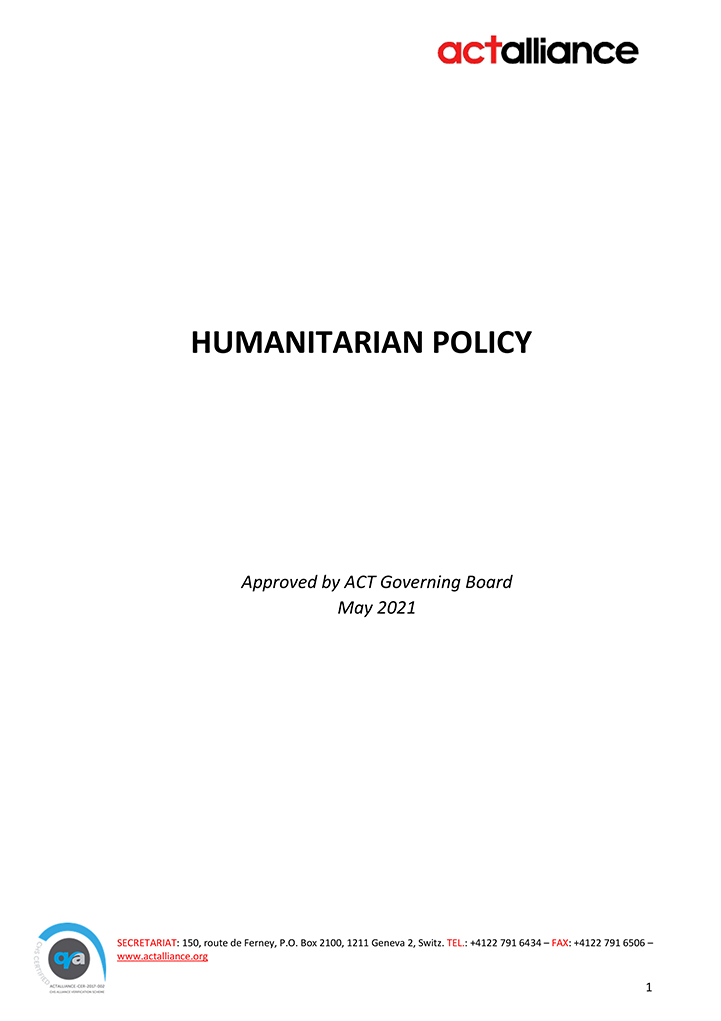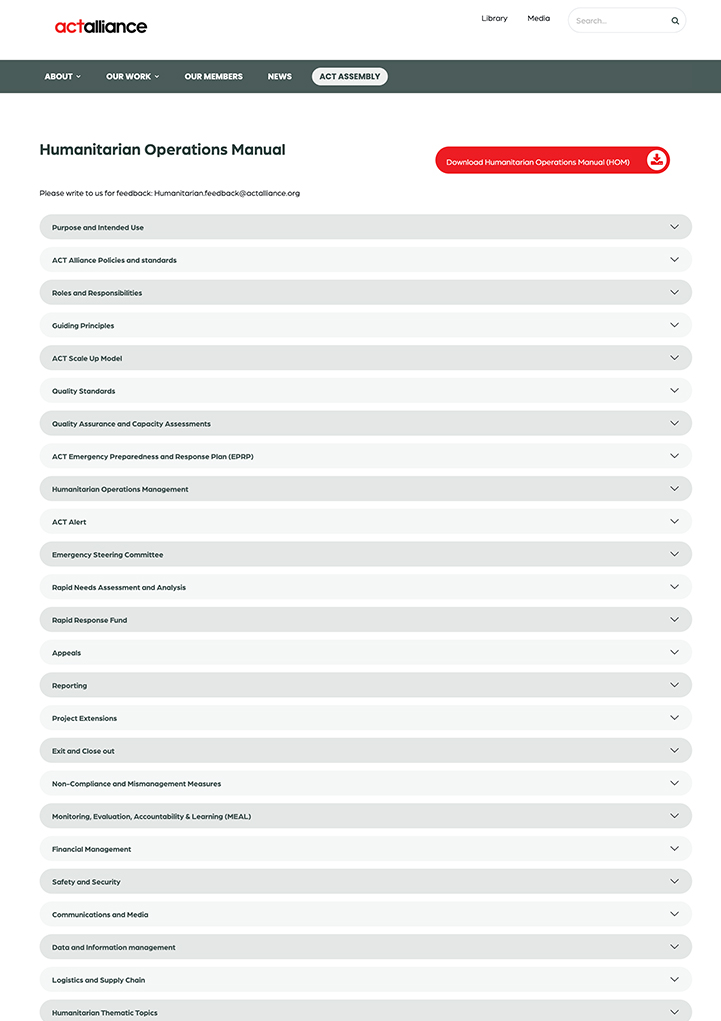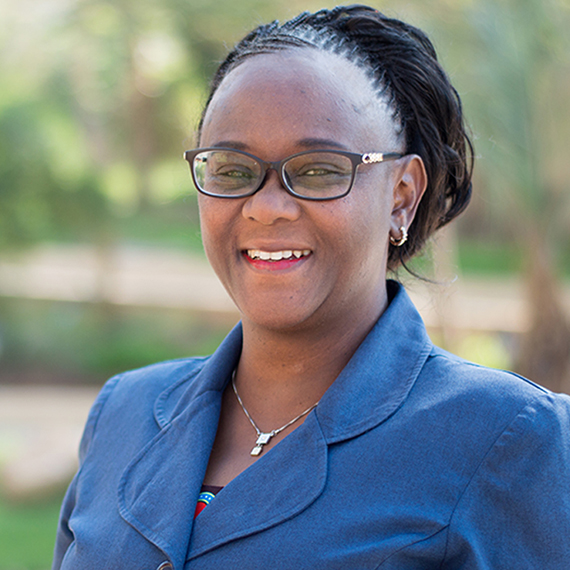ACT Alliance is pleased to announce launching a total of 16 Sub-Appeals under the Global ACT Appeal for the COVID-19 Pandemic (ACT201). In addition, 17 Rapid Response Fund proposals have also been approved.The following Sub-Appeals are now available for consideration by ACT members and potential funders/donors:1. Afghanistan/Pakistan: Humanitarian Response to COVID-19 affected Communities in Pakistan and Afghanistan – ACT201-AFG/PAK. Budget Approved by the Steering Committee to be funded by ACT201: USD1,000,000; Budget Requested: USD3,702,121.2. Bangladesh: COVID-19 Response to Refugees and Host Communities in Bangladesh – ACT201-BGD. Budget Requested: USD998,6383. Cameroon: Reduced morbidity and mortality of COVID 19 pandemic and increased preparedness and resilience of communities through public health interventions and community engagement in Cameroon – ACT201-CMR. Budget Requested USD132,1494. Caribbean Region: COVID-19 Response in the Caribbean – ACT201-CRB. Budget Requested: USD749,6835. Central America: Inclusive and safe access to humanitarian assistance, by strengthening livelihoods and promoting alternatives to water and basic sanitation (Water, Sanitation and Hygiene); improved conditions of vulnerability through Community-Based Psychosocial support (CPSA) and awareness about gender-based violence in its different manifestations. Central America COVID-19 Regional Response - ACT201-CAM. Budget Requested: USD936,1036. Democratic Republic of Congo: Preparedness and response to primary impacts of COVID-19 on IDPs, returnees, hard to reach and vulnerable populations in North Kivu and South Kivu, DRC – ACT201-COD. Budget Requested: USD300,8797. Greece: Emergency support to the most vulnerable Greeks and Refugees suffering from the COVID-19 Pandemic – ACT201-GRC. Budget Requested: USD498,1518. India: Humanitarian Assistance to vulnerable and affected communities of the COVID –19 Pandemic – ACT201-IND. Budget Requested: USD856,7029. Jordan: ACT Response to Refugees and Jordanians impacted by COVID-19 Pandemic –ACT201-JOR. Budget Requested: USD844,69010. Palestine: ACT Response to Refugees and Vulnerable communities Impacted by COVID-19 in Palestine and Israel – ACT201-PSE. Budget Requested: USD718,00011. Somalia: ACT Multi-Sectoral and Integrated COVID-19 Response in Somalia – ACT201-SOM. Budget Requested: USD1,000,00012. South Sudan: South Sudan Response to the COVID-19 Pandemic – ACT201-SSD. Budget Requested: USD994,79313. Southern Africa: To contribute to prevention, management and stopping the spread of COVID-19 through provision of healthcare services to targeted community members in Zambia, Malawi and Madagascar – ACT201-SARF. Budget Requested USD570,00014.Tanzania: COVID-19 Response in Tanzania - ACT201-TZA. Budget requested USD989, 06615. Ukraine: Response to the COVID-19 Pandemic in Ukraine – ACT201-UKR. Budget requested USD 355,00016. Venezuela: Improve protection and assist populations that are most vulnerable to the pandemic, thereby especially addressing needs of IDP’s, migrants and host communities ACT201-VEN. Budget Requested: USD600,00017. West Africa: Preparedness and response to primary and secondary impacts of COVID-19 on IDPs, Returnees, hard to reach and vulnerable populations in Nigeria, Burkina Faso, and Sierra Leone ACT201-WARF. Budget Requested: USD971,000Total Sub-appeals Funding Requested: USD 12,514,854
Rapid Response Fund proposals approved1. Afghanistan: Community World Service Asia (CWSA) will provide cash to 580 at risk households to support their basic needs, as well as 200 PPE kits for 2 health facilities.2. Armenia: Armenian Apostolic Church (AAC) will provide food assistance to 2545 households and health services to older people in remote areas.3. Bangladesh: Christian Commission for Development (CCDB) in Bangladesh will provide food and hygiene supplies to 5000 households of daily workers who have lost their livelihoods during the lockdown.4. Brazil: Coordenadoria Ecumênica de Serviço (CESE) will provide food packages to 4200 indigenous households in the Amazon region, Mato Grosso do Sul and Rio Grande do Sul.5. Cuba: Cuban Council of Churches (CIC) will provide protection kits for health personnel from 2 isolation centres, 880 people with personal hygiene kits, food to 140 patients at an isolation centre, and psychosocial support to 2000 people.6. Egypt: The Bishopric of Public, Ecumenical and Social Services (BLESS) will provide hygiene kits and food to 3000 households, and will work with local faith leaders to disseminate key messages on infection prevention and good hygiene, as well as reducing fear and stigma.7. Ghana: The Presbyterian Church in Ghana- Relief Services and Development (PRS&D) will provide food to 1500 households, handwashing stations in 10 communities, and protective equipment to vulnerable households and three health centres.8. Haiti: Service Chrétien d’Haïti (SCH) will engage in a community-led response to raise awareness of COVID-19, encourage families to take appropriate steps to prevent the disease, and provide food to support 420 families losing their daily wage income during lockdown.9. Honduras: Comisión de Acción Social Menonita (CASM) will provide biosecurity kits to 40 medical staff in 10 primary health units, cash transfers for food purchases to 1650 families, and COVID-19 prevention and anti-stigma information to 7000 people.10. Indonesia: Pelkesi, Yakkum Emergency Unit (YEU) and the Centre for Disaster Risk Management and Community Development Studies will provide PPE and psychosocial support to staff at five COVID-19 referral hospitals, and will reach 10,000 with an information campaign about prevention and mitigation of COVID-19.11. Lebanon: Department of Service to Palestinian Refugees of the Middle East Council of Churches (DSPR-MECC) will target 440 households including Syrian families living in the camps for cash grants that will be utilised for food, drinking water, medicines, hygien kits, and rent subsidies.12. Malawi: Christian Agency for Rural Development (CARD) and Evangelical Lutheran Development Service (ELDS) will provide an awareness campaign to reach 2.4 million people with accurate information about COVID-19 and its prevention, and will work with local faith leaders to provide psychosocial support to affected families.13. Peru: Diaconia Peru will provide free virtual counselling to 12,000 vulnerable people in Peru, Ecuador, Bolivia and Colombia, with an emphasis on the prevention of gender-based and family violence. Local faith leaders will be trained in GBV prevention and pastoral responses to illness and bereavement. Additionally, 600 vulnerable families will receive food and PPE support.14. Philippines: The National Council of Churches in the Philippines (NCCP) will provide food packs, sanitation and hygiene kits, and unconditional cash grants to 1500 vulnerable families.15. Serbia: Ecumenical Humanitarian Organization (EHO) and Philanthropy- The Charitable Fund of the Serbian Orthodox Church will provide food packages to 3000 people, hygiene packages to 4300 people, PPE for frontline workers, shelter for homeless people, psychosocial support to 130 people (focusing on gender), and engagement with faith and religious leaders and groups to provide awareness raising.16. Tanzania: The Evangelical Lutheran Church in Tanzania (ELCT), through its network of hospitals and local health facilities, will provide PPE for 480 frontline medical professionals, work with 50 bishops and high-level religious workers on information and awareness messaging, and medical interventions for 25,000 high-risk people to reduce new infections and allay fears and anxiety.17. Uganda: Church of Uganda will provide food assistance to 50 households and communicate to the communities the risk of COVID-19 and its infection prevention. The Church will also engage faith leaders to raise awareness on GBV and provide psycho-social support.Please communicate all pledges and/or funding opportunities to the Head of Humanitarian Affairs, Alwynn Javier (alwynn.javier@actalliance.org), with copy to the Finance Officer, Marjorie Schmidt (marjorie.schmidt@actalliance.org).











